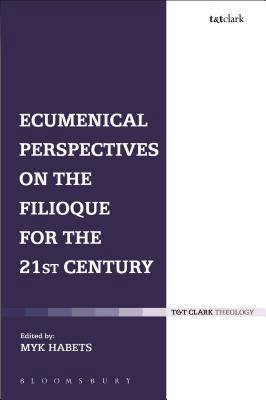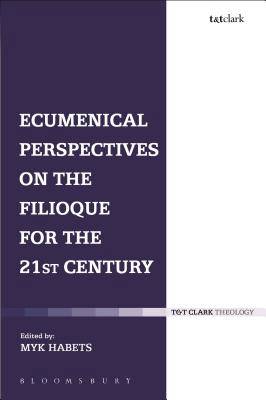
- Afhalen na 1 uur in een winkel met voorraad
- Gratis thuislevering in België vanaf € 30
- Ruim aanbod met 7 miljoen producten
- Afhalen na 1 uur in een winkel met voorraad
- Gratis thuislevering in België vanaf € 30
- Ruim aanbod met 7 miljoen producten
Ecumenical Perspectives on the Filioque for the 21st Century
Omschrijving
The volume presents a range of theological standpoints regarding the filioque. With some contributors arguing for its retention and others for its removal, still others contest that its presence or otherwise in the Creed is not what is of central concern, but rather that how it should be understood is of ultimate importance. What contributors share is a commitment to interrogating and developing the central theological issues at stake in a consideration of the filioque, thus advancing ecumenical theology and inter-communal dialogue without diluting the discussion. Contributors span the Christian traditions: Roman Catholic, Protestant, Eastern Orthodox, and Pentecostal. Each of these traditions has its own set of theological assumptions, methods, and politics, many of which are on display in the essays which follow. Nonetheless it is only when we bring the wealth of learning and commitments from our own theological traditions to ecumenical dialogue that true progress can be made. It is in this spirit that the present essays have been conceived and are now presented in this form.
Specificaties
Betrokkenen
- Uitgeverij:
Inhoud
- Aantal bladzijden:
- 272
- Taal:
- Engels
- Reeks:
Eigenschappen
- Productcode (EAN):
- 9780567500724
- Verschijningsdatum:
- 1/07/2014
- Uitvoering:
- Hardcover
- Formaat:
- Genaaid
- Afmetingen:
- 157 mm x 236 mm
- Gewicht:
- 566 g

Alleen bij Standaard Boekhandel
Beoordelingen
We publiceren alleen reviews die voldoen aan de voorwaarden voor reviews. Bekijk onze voorwaarden voor reviews.






